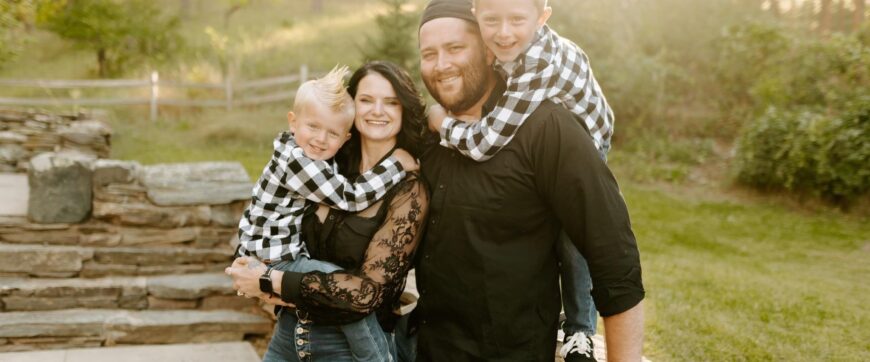Cystic fibrosis (CF) presents a wide range of challenges, and no one understands them more intimately than those living with the condition. As someone diagnosed with CF at just two weeks old, I’ve come to know my body better than anyone else ever could.
Throughout my adolescence, I struggled with digestive issues as opposed to the more traditional respiratory symptoms felt by other people with CF. At 12 years old, I was diagnosed with CF-related liver disease and a decade later, CF-related diabetes. As I embarked on my journey to become pregnant, I was not naive to the fact that challenges conceiving – and potential gestational complications – loomed large. However, after 25 years of participating in clinical trials (~30 trials), and studying biomedical sciences myself, I was attuned to the fact that my body was complex yet resilient.
In 2017, my husband and I became pregnant with our first child while I was taking the CFTR modulator Orkambi. Due to limited data on its potential fetal effects, I stopped the medication five weeks after conception. Throughout the pregnancy, I faced significant challenges, including two lung exacerbations, a drop in my FEV1 from 92% to 79%, and diagnoses of influenza, upper respiratory and sinus infections, and cholestasis. Treatment required antibiotics, constant monitoring, and betamethasone to induce labor, but our son was born healthy, and I recovered after resuming Orkambi. After two years of trying to conceive, I switched to Trikafta in December 2019 and became pregnant a month later. This time, I continued Trikafta, prioritizing the prevention of illness over potential risks. My FEV1 remained stable at 95%, and the pregnancy was largely uncomplicated until 27 weeks, when I was diagnosed with cholestasis. At 36 weeks, I was given betamethasone to induce labor again.
While I remained healthy for much more of my second as opposed to my first pregnancy, the psychological and emotional toll differed. During my first, I was in a large city with a supportive and extensively knowledgeable medical team. In contrast, my second pregnancy took place in an area where CF was far less common, and I became something of a medical spectacle. I remember discussing my concerns with my doctor, asking all the ‘right’ questions, like, ‘Are you comfortable navigating a high-risk pregnancy with potential exacerbations?’ The OB reassured me that she was prepared, but once complications arose, she admitted she wasn’t sure how to coordinate care with my specialists and high-risk doctors. Needless to say, I no longer felt confident.
Living with CF has taught me the importance of self-advocacy and resilience, especially during the challenges of pregnancy. People with CF are not just an exciting case to conquer, or numbers on a screen. We are people with lives and emotions. My experiences highlight the crucial need for medical professionals to listen to and collaborate with patients who understand their bodies better than anyone else, ensuring care is compassionate and betterment for the patient is always at the forefront.
By Crystal Boeckel
